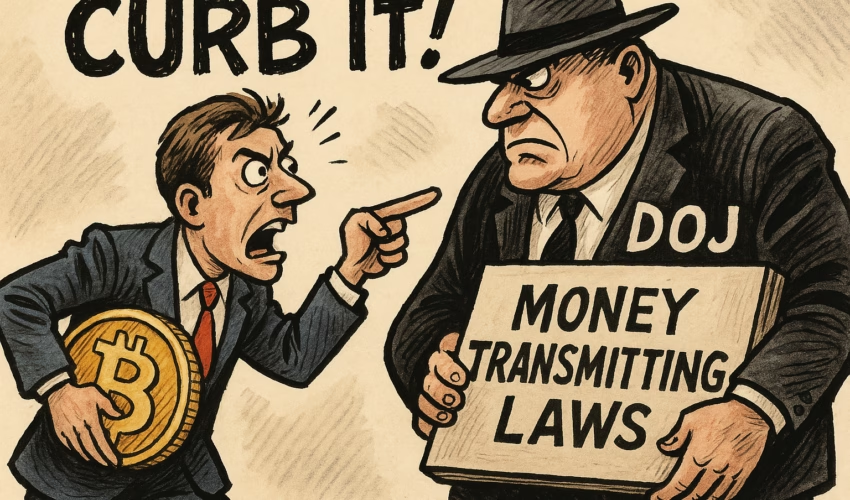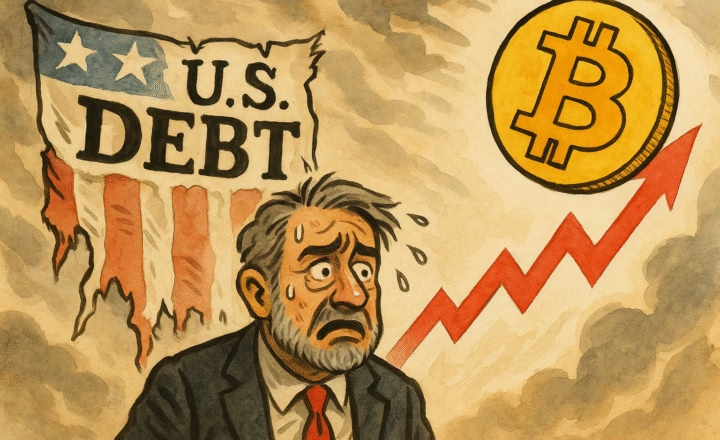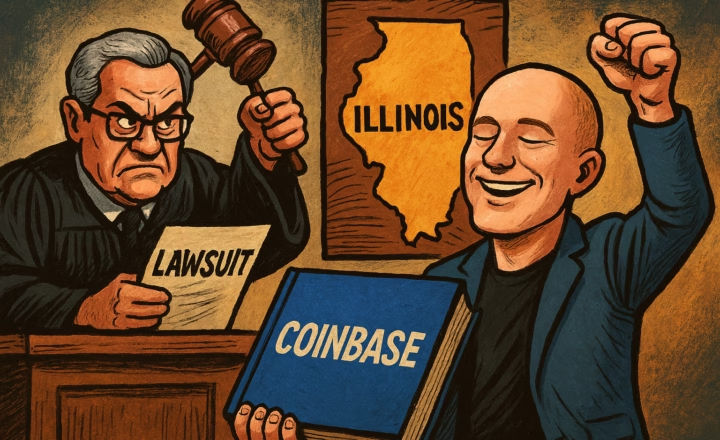Coalition says Tornado Cash indictments set dangerous precedent that threatens non-custodial software development in the U.S.
A coalition of 34 major crypto firms and advocacy groups, including Coinbase, Kraken, and the DeFi Education Fund, has formally requested that Congress re-evaluate and limit the U.S. Department of Justice’s (DOJ) interpretation of money transmission laws, which they argue pose an existential threat to blockchain innovation and open-source development in the United States.
🚨NEW: Today, the DeFi Education Fund is proud to publish a coalition letter of industry leaders & advocates calling on Congress to correct, what in our collective view, is the DOJ’s dangerous misinterpretation of money transmission laws.
A thread 🧵⤵️https://t.co/ZbcifAzbj8 pic.twitter.com/AqhHDCjGc3
— DeFi Education Fund (@fund_defi) March 26, 2025
In a March 26 letter sent to several Congressional committees, including the Senate Banking Committee and the House Financial Services Committee, the signatories criticized the DOJ’s legal basis for charging developers of the Tornado Cash crypto mixing protocol with operating an unlicensed money-transmitting business.
The coalition argues that the DOJ’s interpretation effectively criminalizes non-custodial software development—an overreach that could disincentivize innovation and push Web3 development offshore.
The Tornado Cash Case: A Flashpoint
The debate centers around the August 2023 indictment of Tornado Cash developers Roman Storm and Roman Semenov, who were charged with money laundering and operating an unlicensed money-transmitting business. Storm, a U.S. citizen, has since pleaded not guilty and is currently out on bail. Semenov, a Russian national, remains at large.
The DOJ alleges that the developers knowingly facilitated illicit transactions—including those linked to North Korea’s Lazarus Group—by maintaining and updating a protocol that allows users to obfuscate the origins of crypto transfers.
However, the crypto coalition contends that the DOJ’s legal argument misinterprets federal statutes, placing non-custodial software developers at criminal risk simply for publishing code.
Legal Ambiguity: Sections 5330 vs. 1960
At the heart of the controversy are two sections of the U.S. Code that define and regulate money transmission:
-
Title 31, Section 5330 outlines registration requirements for entities that qualify as money transmitters.
-
Title 18, Section 1960 criminalizes the operation of an unlicensed money transmitting business.
The letter argues that the DOJ is now asserting that compliance with Section 5330—and its interpretations by the Financial Crimes Enforcement Network (FinCEN)—is irrelevant when determining violations of Section 1960. This marks a significant departure from long-standing regulatory guidance.
In particular, FinCEN’s 2019 guidance explicitly states that developers who do not take possession or control of customer funds are not considered money transmitters. Under this guidance, non-custodial software developers like those behind Tornado Cash would fall outside the purview of money transmission laws.
“If a software developer never obtains possession or control over customer funds, that developer is not operating a ‘money transmitting business,’” the FinCEN guidance reads.
The coalition asserts that the DOJ is ignoring both the letter of the law and FinCEN’s interpretation, thereby creating a contradiction between federal agencies and exposing innocent developers to potential criminal liability.
Industry Fallout and Developer Backlash
The crypto industry fears that this aggressive interpretation of money transmission laws will have a chilling effect on open-source development. According to the letter:
“The resulting, and very rational, fear among developers would effectively end the development of these technologies in the United States.”
If upheld, the DOJ’s position could result in the prosecution of any developer who writes and publishes non-custodial crypto software, regardless of their intent or involvement in actual fund transfers.
This fear is not hypothetical. In January, Michael Lewellen, a fellow at Coin Center, filed a lawsuit against U.S. Attorney General Merrick Garland, seeking a court declaration that his forthcoming release of non-custodial software is legal. Lewellen argued that the DOJ’s evolving stance stretches legal definitions “beyond what the Constitution allows.”
The lawsuit signals growing legal resistance to what many see as criminalizing code, a concern that has long resonated within the digital rights community.
Political Momentum and Congressional Outlook
While the DOJ has not publicly responded to the letter, pressure is mounting from both the crypto industry and members of Congress to reform federal laws and provide clear boundaries for law enforcement actions in the digital asset space.
The timing of the letter is strategic. Congress is currently reviewing several major crypto regulatory proposals, including the Financial Innovation and Technology for the 21st Century Act (FIT21) and the reintroduced Securities Clarity Act, both of which aim to bring legal clarity to the sector.
“The DOJ’s approach could undo much of the bipartisan progress made toward rational crypto policy,” warned one policy expert close to the matter.
The coalition hopes lawmakers will amend Section 1960 or issue additional legislative clarification to reinforce FinCEN’s guidance and prevent further legal overreach.
Investor Implications
The outcome of this debate could have significant implications for investors and market participants:
-
Protocol risk: Non-custodial platforms or mixers may be viewed as legally vulnerable, affecting token valuations and protocol adoption.
-
Developer flight risk: U.S.-based projects may relocate to jurisdictions with clearer legal protections, shifting innovation overseas.
-
Increased compliance scrutiny: Exchanges, wallets, and DeFi platforms may preemptively delist or restrict tools deemed risky under DOJ standards.
-
Legal precedent: If the courts uphold DOJ’s view, the door may open to broader enforcement against developers across the DeFi ecosystem.
Conclusion
The DOJ’s pursuit of Tornado Cash developers has become a litmus test for the future of software development rights in crypto. As federal agencies adopt diverging views on core legal definitions, the crypto industry is calling on Congress to restore clarity and ensure innovation can thrive without fear of criminal prosecution.
Whether lawmakers respond—and how quickly—will determine whether the U.S. remains a hub for Web3 development or cedes that ground to more innovation-friendly jurisdictions.












